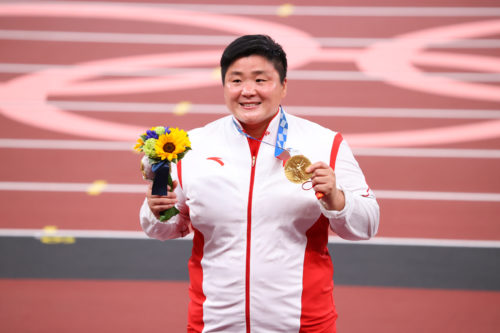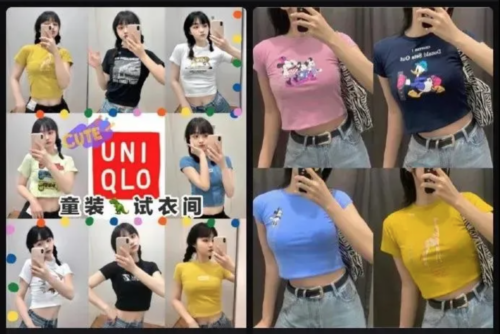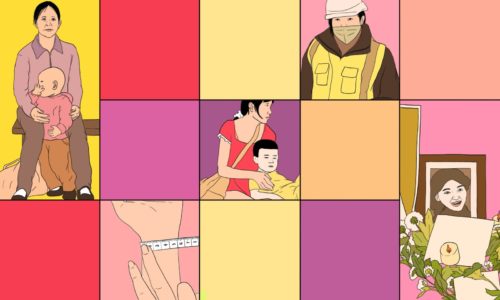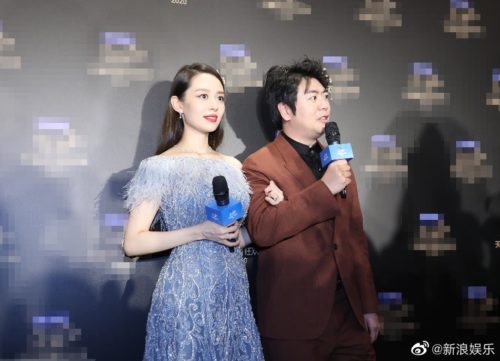Image-obsessed Chinese actress apologizes for comparing her body shape to a cartoon character’s
Don't do this.
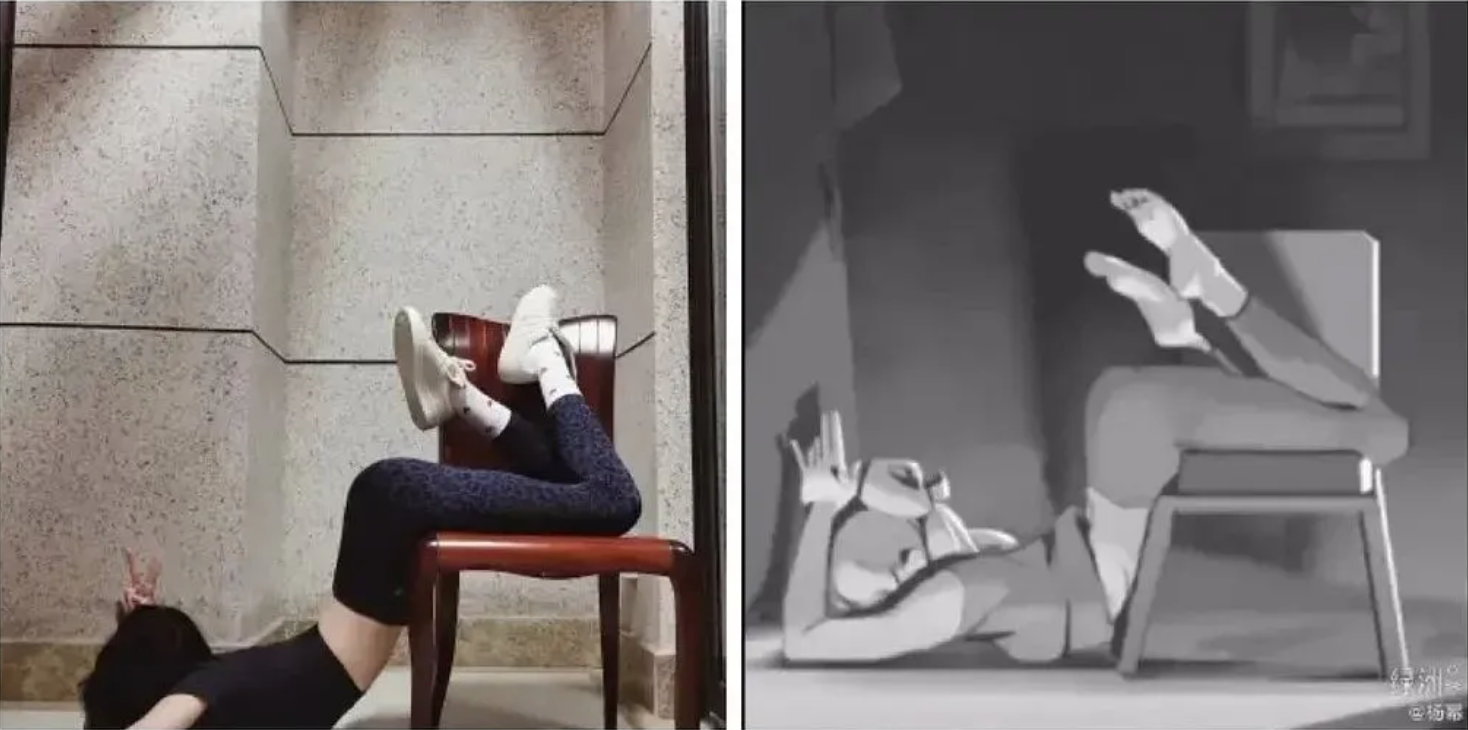
It’s well documented that women who have what society considers attractive figures, and flex their perfect bodies on social media, can send others into a downward spiral of self-doubt and pressure. Yet the Chinese internet just can’t get enough of it. The latest addition to an ever-growing list of body-shaming online trends has Chinese women putting images of their bodies alongside those of female cartoon characters.
Yes, you read that correctly — thinness-obsessed women in China are literally trying to meet unrealistic body expectations set by anatomically incorrect manga girls who are anything BUT real. This might be the dumbest beauty fad since the invention of the internet, but the one good thing about it is that the trend has been heavily criticized, leading to one high-profile social media sharer to apologize for being “inconsiderate” and “misinformed.”
China news, weekly.
Sign up for The China Project’s weekly newsletter, our free roundup of the most important China stories.
Named the “manga waist challenge” (漫画腰挑战 mànhuàyāotiǎozhàn), the trend first picked up steam on Douyin — the Chinese version of TikTok — and popular lifestyle app Little Red Book, with many thousands of mostly young women posting self-portraits in a pose struck by a slender girl in a manga drawing, where she is shown lying with her chest on the ground and her thighs on a chair, demonstrating what seems like an effortless 90-degree backbend.
It didn’t take long for the challenge to grow beyond average social media users and reach celebrities, and that’s when it became a subject of spirited debate. “Raising my hand for the ‘manga waist challenge.’ It’s a little challenging,” wrote Chinese actress Yáng Mì 杨幂, who had over 110 million followers on Weibo, in a post shared on March 23, which included a side-by-side comparison of her attempting to re-create the difficult pose. Citing Yang as her inspiration, 21-year-old idol group member Zhāng Yìfán 张艺凡 posted her own version of the challenge later that day. “I’m taking on the challenge,” her caption reads. “Yang is so good at this!”
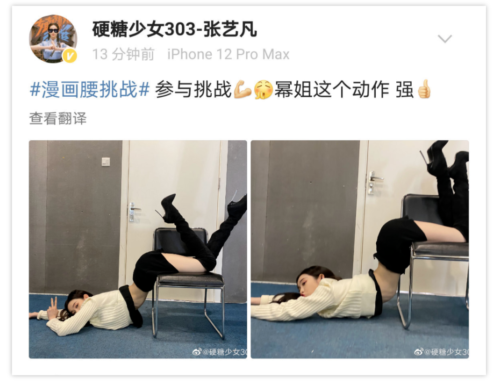
While the challenge does not explicitly promote weight loss, the underlying message of the trend is clear: The closer you’re able to replicate the image of a girl with a waist the size of a stick, the skinnier you are and, therefore, the more you deserve to live and be happy.
But there are real victims in the process, including those who don’t fit conventional beauty standards, those who grapple with body image insecurities, and those who start to think something is wrong with them just because they don’t look like Yang or Zhang. Tired of being pressured to fit a certain physical ideal, people who were upset by the “manga waist challenge” took to social media.
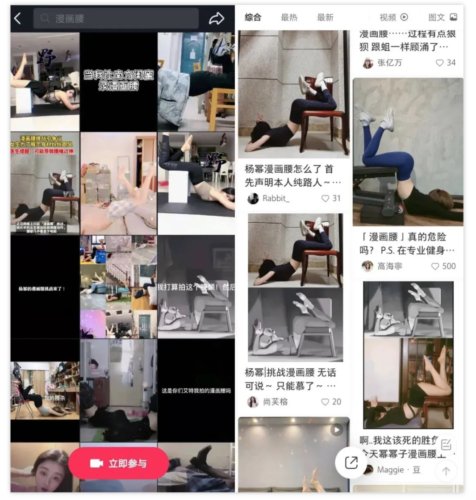
“I’m all for fun, fresh fitness challenges that motivate people to exercise more and eat more healthily, but this is not it. This achieves nothing other than encouraging body image negativity,” a Weibo user wrote (in Chinese). Another said (in Chinese), “It’s silly for people to think that simply being able to contort your body actually says something about your health, and not just that you were born flexible or you should consider a career as an acrobat.”
Much of the indignation was directed at Yang Mi, who was accused of not only promoting unrealistic body standards, but also glorifying a dangerous trend that might lead to serious back injuries, according to Dingxiang Doctor (in Chinese), a health-focused anti-misinformation platform.
Many of Yang’s critics also pointed out that the 34-year-old actress seemed to have an obsession with her appearance and public image. Back in 2015, Yang was one of the celebrities who publicly participated (in Chinese) in the “belly button challenge,” which saw people trying to reach an arm behind their back and around to touch their belly button. “Almost every time she started trending on social media, it was about how skinny she was and how young she looked for someone her age. It’s hard not to think this was a narrative pushed by her PR team,” a Weibo user wrote (in Chinese).
Aming growing calls for her to do a reality check on the negative impact of her weight obsession, Yang deleted her “manga waist challenge” post and issued an apology yesterday, saying that she didn’t mean to cause “misunderstandings” and vowed to be more “careful” in the future. “I was just informed that without professional guidance, attempting such postures could cause harm to one’s body,” she wrote (in Chinese) in a post on Weibo. “I hope everyone can stretch and exercise safely.”
Not everyone thought the apology was even necessary. Many of Yang’s followers rushed to her defense, arguing that the backlash was just a case of sour grapes. “Female celebrities are always under pressure to look their best. If you feel anxious just by seeing other people who are prettier than you, maybe try logging off the internet,” a Yang defender wrote (in Chinese).
Previous absurd body-shaming trends that have gone viral in China include “the A4 waist challenge,” in which women showed their waists were narrower than an A4 sheet of paper held vertically, and the “4 cm wrist challenge,” which saw participants taking photos of themselves with a ruler placed next to their wrists, providing evidence that their wrists measured less than 1.57 inches. Earlier this month, the kids’ section at Uniqlo in China made headlines, as adult women flocked to the brand’s fitting rooms to snap selfies of themselves trying on children’s clothes in another figure-centric viral challenge.

